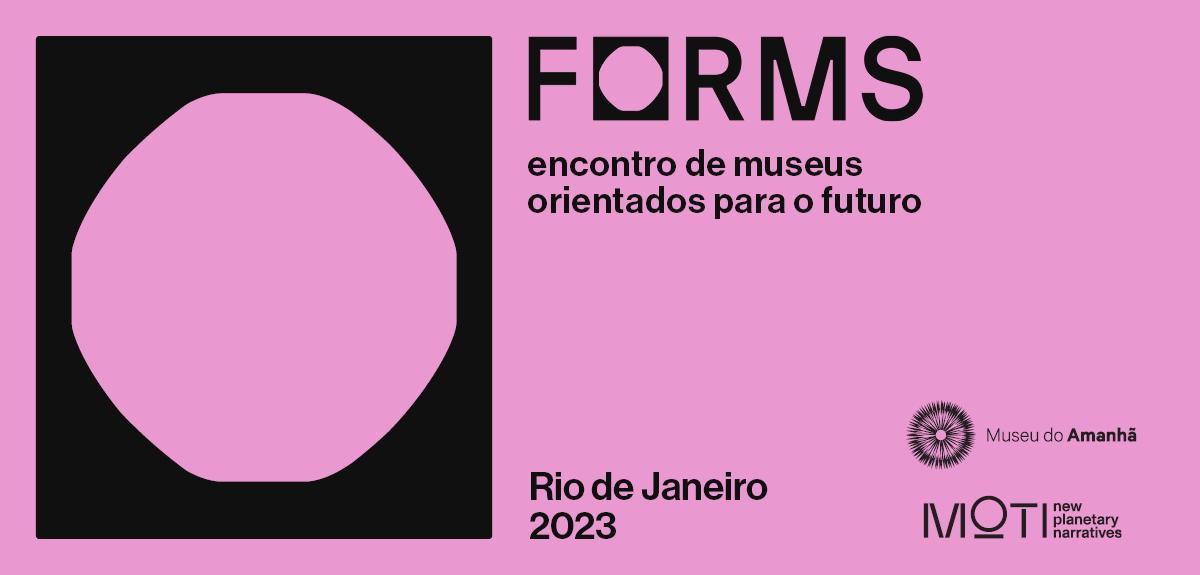Museum of Tomorrow hosts Forms of Life
From September 28 to October 1st, representatives from renowned cultural institutions such as the NEMO Museum in the Netherlands, the Science Museum in the United Kingdom, the Climate Museum in the United States, the Technomuseum and Futurium in Germany, and the Museum of The Future in the United Arab Emirates will make the Museum of Tomorrow their home. For the first time in Latin America, Forms of Life: The Future-Oriented Museum meeting will bring together a global community of cultural leaders committed to thinking, rethinking and decolonizing the future, creating a network to imagine different paths for culture and science around the world.
The guests will take part in panels, experience-sharing workshops and challenges. An immersion in activities that encourage reflection to create new future scenarios, exploring themes such as social and digital technologies, diversity and coexistence; memory and innovation; sustainability and ecology.
"Holding the Forms meeting at the Museum of Tomorrow allows for a broad exchange of ideas with great leaders and experts on topics dear to humanity. It also strengthens our mission as a reference institution that thinks and acts to make more desirable and sustainable futures tangible. The plurality and diversity of participants provides a glimpse into the particularities of different territories around the world, broadening and updating urgent discussions such as the climate crisis. Future-oriented museums are living organisms that reverberate knowledge not only in their exhibitions, but in all their practices and especially in their relationship with their public," explains Bruna Baffa, managing director of the Museum of Tomorrow.
Free activities open to the public
On September 29, the Forms of Life will have a program open and free to the public: the panel "Future Ancestors" and two discussion groups on the themes "How to create future-oriented museums" and "How to bring hope in a planetary crisis?". Registration is free and can be done by filling in the form at the website. Places are limited.
"Future Ancestors" begins at 10 a.m. and promotes a discussion on the relationship between time and culture, and the valuing of ancestry and history for building more democratic realities. The panel will be mediated by Prof. Fábio Scarano, head of the Unesco Chair for Literacy in Futures at Museum of Tomorrow, in partnership with UFRJ university, and director of the IDG Futures School. The debate will feature philosopher Katiúscia Ribeiro, a professor and researcher specializing in African philosophy; Sidarta Ribeiro, a neuroscientist and author of more than 100 scientific articles and five books, including "O Oráculo da Noite" and "Sonho Manifesto"; and anthropologist Francy Baniwa, a researcher in the fields of ethnology and indigenous organizations.
The round table discussion, "How to create future-oriented museums?" takes place at 2 p.m., with the participation of Keyna Eleison, curator of the Biennial of the Amazon 2023, and of the 10th SIART International Biennial in Bolivia; and Mario Chagas, museologist and director of the Museum of the Republic. Two international guests will join this forum: Andrés Roldan, director of Colombia's Explora Park, and Kristin Alford, inaugural director of MOD, an award-winning discovery museum of the University of South Australia.
At 4.30 p.m. on the same date, there will be a round table discussion entitled, "How to bring hope in a planetary crisis?", mediated by Fabio Scarano, holder of the Unesco Chair for Literacy in Futures of Museum of Tomorrow (in partnership with UFRJ) and director of the IDG (Institute of Development and Management) Futures School. The debate participants are: Raul Santiago, manager, creator and advisor of social initiatives in the third sector; Artemisa Xakriabá, Brazilian human rights activist; Silvia Singer, director of MIDE in Mexico, and Michael John Gorman, founding director of Biotopia in Germany.
On September 30, the public will be able to take part in two free educational activities. In "A World Inhabited by Spiders", at 10 a.m., participants will learn about the devices these animals have created throughout their evolutionary history, which provide clues for understanding the world and finding allies in times of climate emergency. In "How to Talk to Ants", at 4 p.m., the aim is to introduce people to the ways of living with ants, especially those that have been characterized as urban pests.
About FORMS
The Museum of Tomorrow integrates the FORMS, a global community of cultural leaders committed to the collective exercise of our imagination as an attempt to decolonize the future. Through a shared set of core purposes and values, FORMS aims to become a system of global influence that triggers diverse and impacting global collaborations that can help regenerate our local communities. This is possible by promoting social experiences and supporting personal leadership, while encouraging international collaborations that trigger action for a sustainable, trust-based future for all. Other institutions that are part of the community include Science Museum Group (UK), The Climate Museum (USA), Museum of the Future (UEA) and Discovery Museum (NL).
The FORMs of Life in Latin America is a co-achievement of Museum of Tomorrow and MOTI, in a partnership with BMW Foundation and Humanize Institute.

